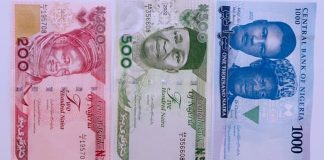
The World Bank spent a total of $7.93 billion for the fiscal year 2022, which ran from July 2021 to June 2022.
According to data acquired from the bank’s website, this was a 74.67% rise over the $4.54 billion reported in the fiscal year 2021, which began in July 2020 and concluded in June 2021. The World Bank defined commitments as the total amount of loans for which contracts were signed in the designated year.
The data acquired included loans from the World Bank’s International Development Association and the International Bank for Reconstruction and Development from 2018 to 2022. The World Bank allocated $38.2 billion to Nigeria between 2018 and 2022. The greatest commitment of $10.45 billion was made during this time in 2018. Rising debt has pushed Nigeria up the World Bank’s ranking of the top ten International Development Association debtors.
Nigeria was ranked fifth in the World Bank Fiscal Year 2021 audited financial accounts, specifically the IDA financial statement, with $11.7 billion in IDA debt stock as of June 30, 2021. However, the World Bank’s Fiscal Year 2022 audited financial filings for IDA revealed that Nigeria had risen to fourth place, with $13 billion in IDA debt stock as of June 30, 2022. The top five nations on the list cut their IDA debt stock marginally.
In a statement issued recently by the World Bank, the global lender said it had approved the Nigeria State Action on Business Enabling Reforms Program-for-Results. The $750 million IDA credit is expected to help Nigeria accelerate the implementation of critical actions that will improve the business-enabling environment in states.
The World Bank Country Director for Nigeria, Shubham Chaudhuri, was quoted in the statement as saying, “Following the significant progress made by states on fiscal reforms through the State Fiscal Transparency, Accountability and Sustainability program, the SABER programme endeavours to offer similar support to the states to undertake critical business-enabling policy and institutional actions that will incentivize private sector development.
“Private sector investments remain the major vehicle to create more jobs, increase revenues to the states and improve social and economic outcomes for citizens.” States in Nigeria were to get the first tranche of the $750m World Bank loan from the SABER programme by December 2022.












